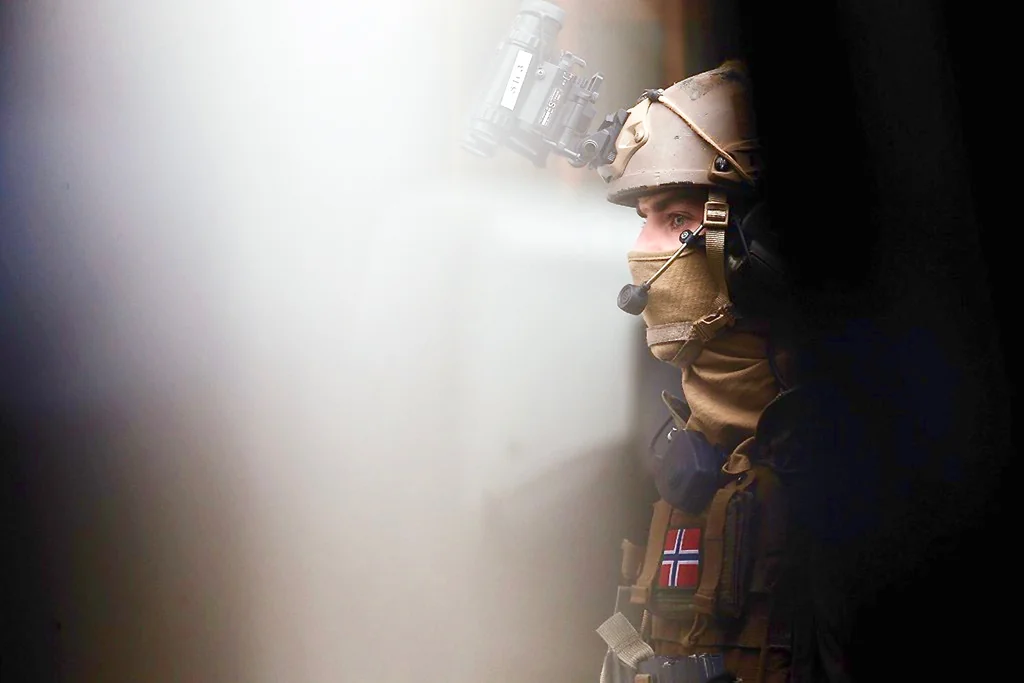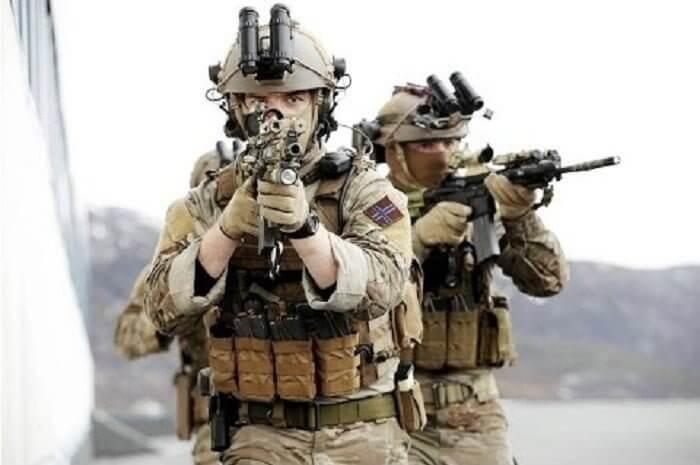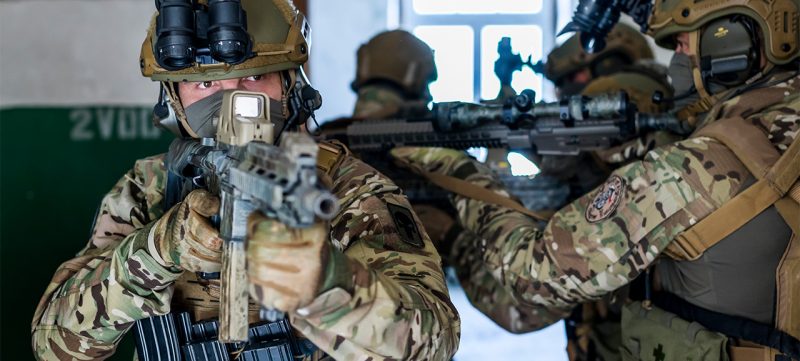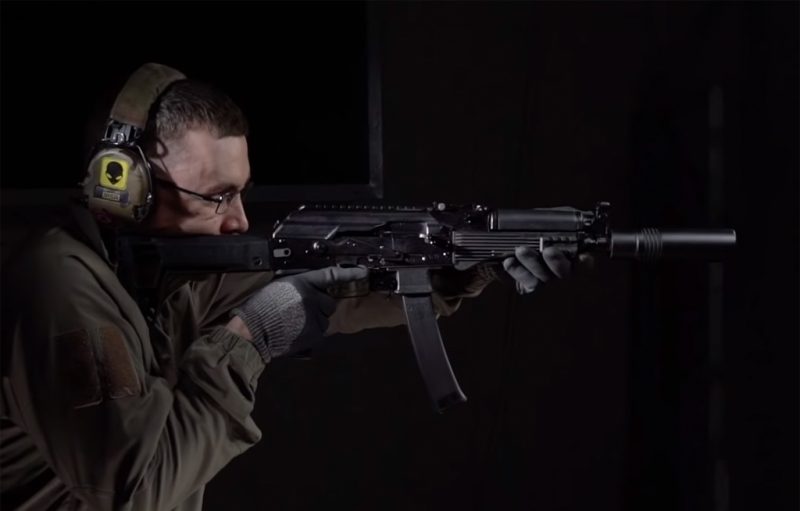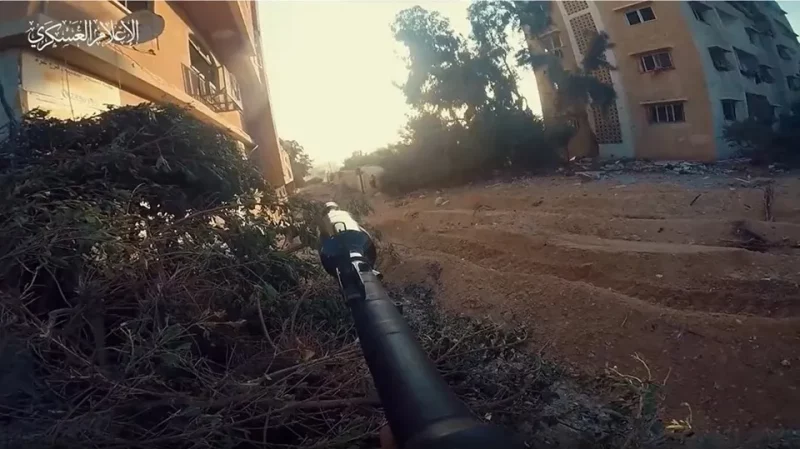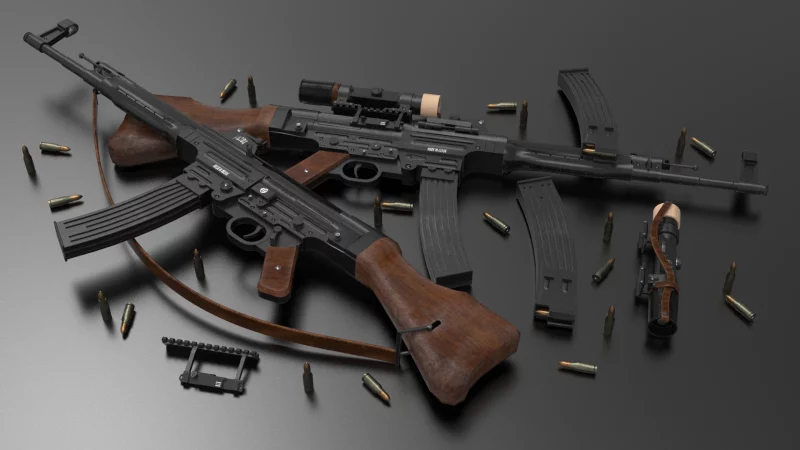The Marinejegerkommandoen (MJK) is a specialized military unit in Norway, one of only two. Founded in 1953, it operates under the jurisdiction of the Norwegian Special Operations Command (NORSOCOM). Its main operations base is at the Ramsund naval base in the country’s northern region, with additional personnel stationed at the Haakonsvern naval base in the southwest.
Introduction
The Marinejegerkommandoen (MJK) is a specialized military unit modeled after British special forces. It can be compared to elite units such as the British Special Boat Service (SBS) and the US Navy SEALs. The unit’s primary objectives are deep penetration reconnaissance and sabotage of enemy naval installations, which require meticulous planning, swift execution, high precision, covert implementation, courage, and the ability to operate independently.
Like all special operations forces, the MJK targets objectives of high strategic importance. The unit is the oldest special operations forces unit in the country. The other unit under the command of the Norwegian Special Operations Command (NORSOCOM) is the Forsvarets Spesialkommando (FSK).
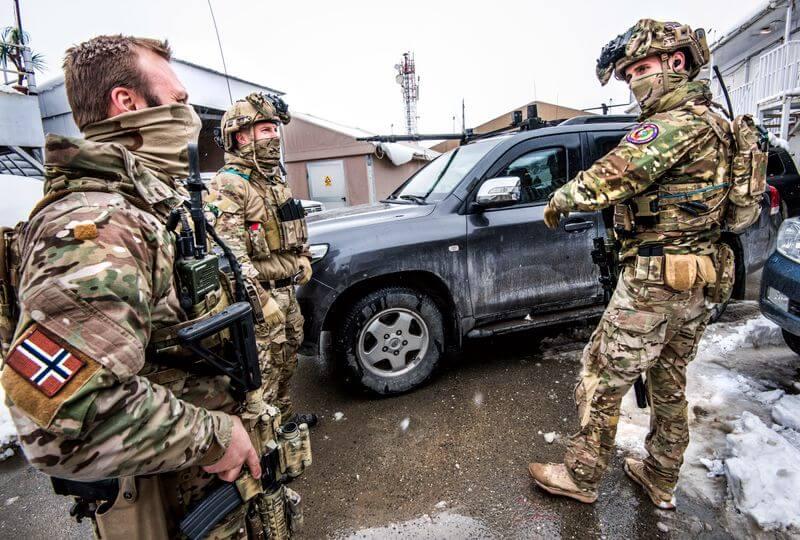
History
In 1940, two Norwegian military units were established in the United Kingdom during the Second World War to conduct special operations against Nazi forces in occupied Norway. These units were the Shetlandsgjengen (Shetland Bus), which used fishing vessels to transport people and materials, and the Kompani Linge (Norwegian Independent Company 1), which Lieutenant Martin Linge initially commanded. Both units were under the command of the British Special Operations Executive.
In 1953, the Marinejegerkommandoen and Minedykkerkommandoen were formed under the Royal Norwegian Navy under the command of Ove Lund. The mission of these frogmen units was to conduct reconnaissance and sabotage against enemy targets above and below water and to disarm water-borne explosive devices. As the unit’s operations evolved, new specialties emerged, leading to the formation of a clearance diver team and two combat swimmer teams in 1968. One of the combat swimmer teams was based at Ramsund Naval Station in northern Norway, while the other was at Karljohansvern Naval Station in southern Norway.
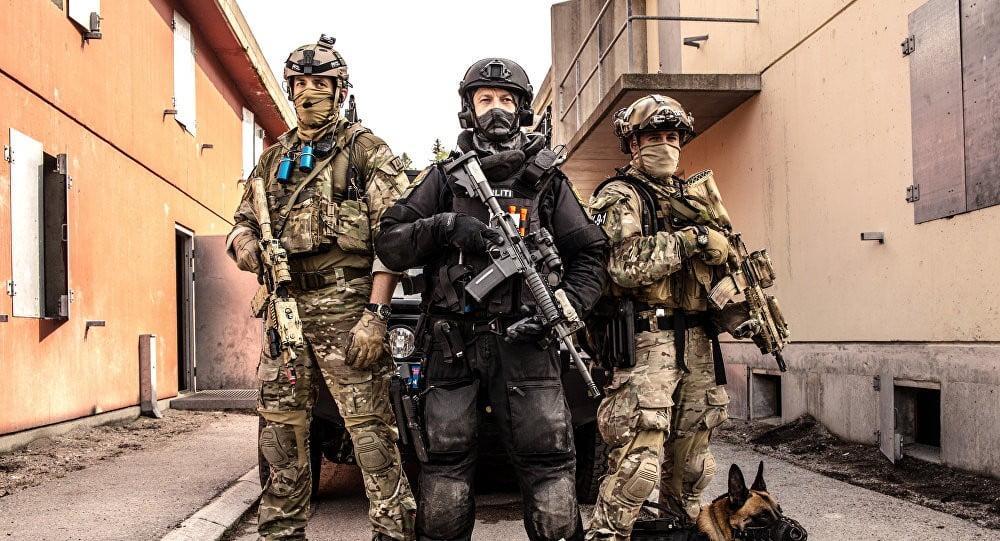
In the past, the two combat swimmer teams were merged into one and based in Ramsund, and later renamed to the current Marinejegerkommandoen. Today, the unit’s main base is in Bergen, with training facilities in Ramsund. In addition to the Marinejegerkommandoen, Norway has at least one Ranger battalion, a light infantry unit capable of dividing into small patrols for extended deep reconnaissance and attrition operations against the enemy command, control, communication, and logistical units, as well as reserves.
The Norwegian Rangers also gather and transmit intelligence for multiple-launch rocket system target acquisition and can call in airstrikes as a forward-air-controller (FAC). They utilize a variety of means for insertion, including all-terrain vehicles, snowmobiles, fast patrol boats, and airdrops.
Mission
The Marinejegerkommandoen plays a crucial role in contemporary warfare operations. The unit is responsible for carrying out missions that demand meticulous planning, swift reaction, high precision, covert implementation, daring, courage, and the ability to operate independently. Like all special operations forces, the unit’s objectives are highly strategic.
In addition to its military operations, the Marinejegerkommandoen is also on national counter-terrorism standby, ready to assist the Norwegian Police alongside the Forsvarets Spesialkommando. The unit is also continuously on standby for international operations.
Training and selection
Becoming a member of the Marinejegerkommandoen, like any modern special operations force, requires a significant investment of time and effort. The training process is physically and mentally demanding, and it takes a minimum of two years to become a fully qualified operator. In addition to the initial training, operators continue to take specialized courses throughout their contract period, such as combat medic training, sniper training, and forward air control (FAC) training.
The selection process for the Marinejegerkommandoen begins with a 22-week course at the Diver and Frogman School at Haakonsvern Naval Station outside Bergen. Following this, candidates proceed to Ramsund Naval Station for further training. One of the final phases of the training, the selection phase, includes carrying a 60 kg (130 lb) rucksack while being hunted by an “enemy force” consisting of Home Guard soldiers, military and law enforcement K-9 units, and police officers. Candidates who are captured must endure 36 hours of tactical questioning.
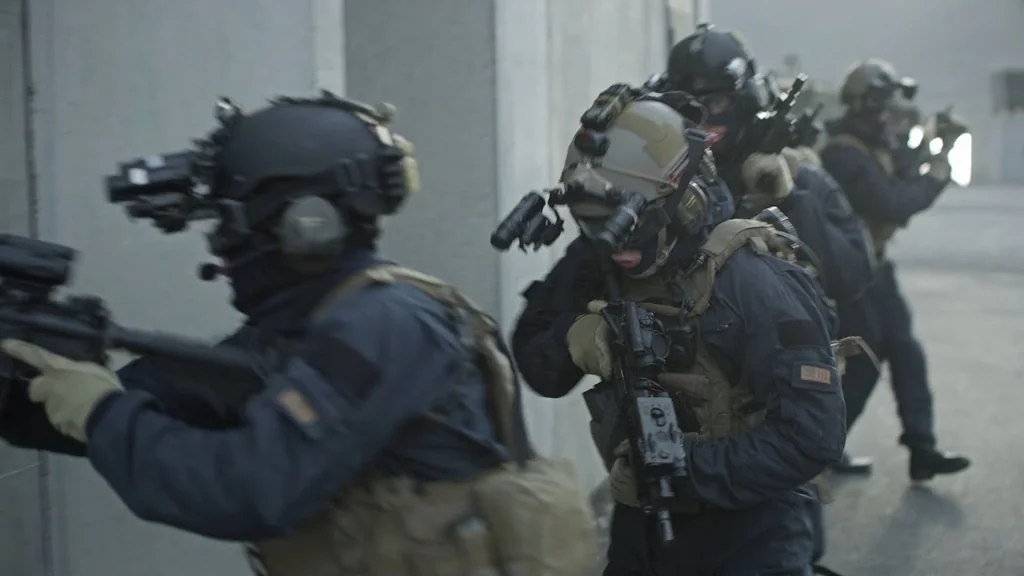
In 2008, a news team from NRK filmed the unit’s selection process, showing recruits being strip searched and doing water exercises at a secret abandoned naval base along the Norwegian coast. The unit also trains alongside the U.S. Navy SEALs regularly.
Operations
The Marinejegerkommandoen has participated in several international operations throughout its history. They actively participated in Operation Enduring Freedom in Afghanistan, where their contributions have largely been kept secret. However, from the limited information available, it is known that their missions have included direct action (DA), Forward Air Control (FAC), and Special Surveillance and Reconnaissance (SR), as well as cooperating with other coalition forces in the fight against the Taliban and Al-Qaeda.
Although it is officially denied, it is reported that Norwegian Special Forces worked with the Kosovo Liberation Army (UCK) to conduct intensive surveillance of Serbian forces’ movements and positions 2 days before NATO’s entry into Kosovo.
The unit also provided operators for Military Observer Teams (MOTs) as part of the Norwegian Armed Forces’ contribution to Faryab Province in northern Afghanistan. During an MOT patrol on June 27, 2010, Lieutenant Commander Trond Andrè Bolle and three Norwegian Coastal Ranger Command members were killed when an IED struck the Iveco LMV they were traveling in. Lt Cmdr Bolle was later awarded the Norwegian War Cross with Sword for commanding the Norwegian Special Operations Force Task Group II in support of Operation Enduring Freedom in Afghanistan’s Helmand province from October 2005 to February 2006.
After Afghanistan, the Marinejegerkommandoen has deployed twice aboard the Royal Norwegian Navy frigate HNoMS Fridtjof Nansen (F310) off the coast of Somalia, conducting anti-piracy operations as part of Operation Atalanta (2009) and Operation Ocean Shield (2013). In January 2013, medical specialists from the unit, among other units, were sent on a Norwegian Air Force Super Hercules to Sicily in connection with the In Amenas hostage crisis in Algeria.
As with most Special Operations Forces, the mission’s details of the unit are classified.
The MarineJegerKommandoen motto: “Prepare for tomorrow’s threats, today”
Recognition
In 2007, William H. McRaven, then the commander of the Joint Special Operations Command (JSOC), stated that he considered the special operations forces of Norway to be among the top special operations forces in the world. McRaven was instrumental in the planning and execution of Operation Neptune Spear.
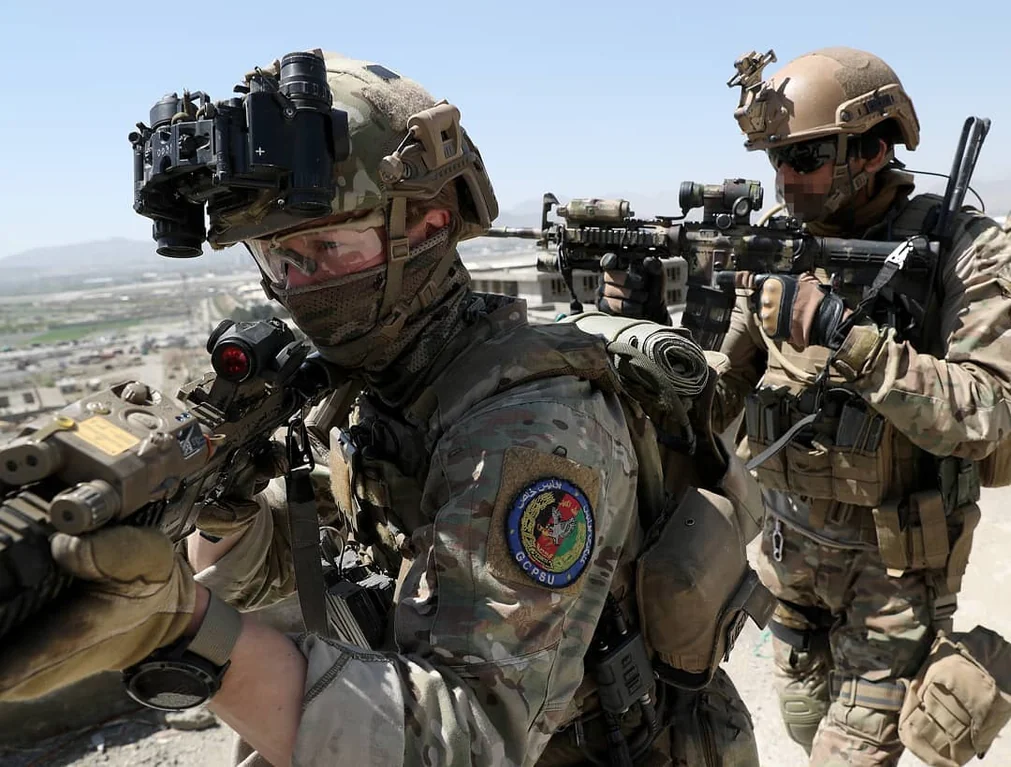
In August 2020, a member of the Marinejegerkommandoen was awarded the Bronze Star Medal of the United States for outstanding efforts during a mission in Afghanistan. This highlights the unit’s high skill and professionalism and recognizes its contributions to international operations.
Equipment
The Marinejegerkommandoen is equipped with the most advanced weaponry and utilizes various equipment tailored to various situations. Some examples include:
- Assault and battle rifles
- Automatgevær 3F2
- Heckler & Koch HK416
- Colt Canada C8 SFW
- Sniper rifles
- Heckler & Koch MSG90
- Accuracy International L115A1
- Anti-material rifles
- Submachine guns/personal defense weapons
- Machine guns
- Browning M2
- Rheinmetall MG 3
- FN Minimi
- Pistols
- Heckler & Koch USP
- Glock 17 – Designated “P80” by the Norwegian armed forces
- Grenade launchers
- AG-C
- M320
- Heckler & Koch GMG
- Anti-tank
- Talley Defense Systems M72 LAW
- Carl Gustaf 8.4cm recoilless rifle
